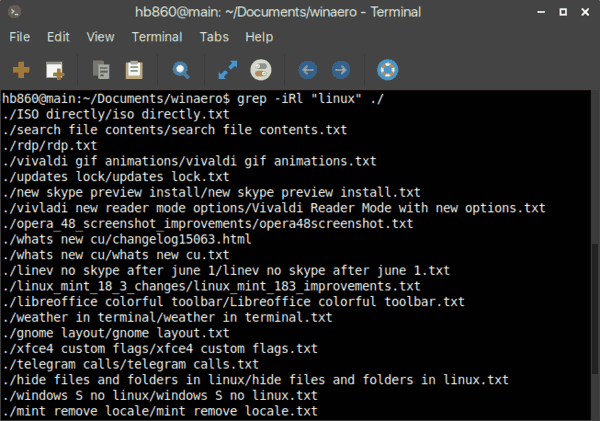

- Shell search all files for text how to#
- Shell search all files for text free#
- Shell search all files for text windows#
We need to print the contents of a file after reading through it. In Linux, we have shell scripting that can do it with just a few lines. File reading is quite an interesting concept to learn as it gives insight into quite a lot of things that can be done in the Programming world.
Shell search all files for text how to#

Shell search all files for text windows#
findstr /s /i Windows *.* - Searches every file in the current directory and all subdirectories for the word Windows ignoring letter case.findstr "windows" c:\documents\*.* - Searches any file under c:\documents for the string "windows".findstr "windows 10" windows txt - Searches for "windows" or "10" in the file.findstr /c:"windows 10" windows.txt - Searches the document windows.txt for the string "windows 10".netstat | findstr "123.123.123.13" - Runs the netstat command and returns any result that matches the string (in this case the IP address).ipconfig | findstr "192.168" - The command runs ipconfig and returns any result that matches 192.168./V - print only lines that contain a matchįindstr Examples That You May Find UsefulĬonsider these examples to try with findstr:./P - skip files with non-printable characters./B - matches patterns at the beginning of lines./R - use search strings as regular expressions./S - searches the directory and all subdirectories.For example, you can look for exact match or case-sensitive words inside files. Some Useful Parameters in findstrĪs you explore findstr, the following parameters will help you find specific texts. Alternatively, use the Run command to open findstr.

Open a new command line prompt by clicking on the Windows-key, typing cmd.exe, and selecting the result. You can run findstr from the command line or as a batch file.

You may use it to scan entire directory structures or drives for files that match the selected string or part of it, and to find specific text in command line outputs quickly. What is findstr – Search for Text in Windows Files Example of findstr on Windows CMDįindstr is a powerful command that you may use to search for strings in files or to filter command line output. Third-party tools like Notepad++, GGRep, and Everything support finding text in files as well. Run findstr /? from the command line to display all parameters and options that "Find String" supports. You can use the application to filter command-line outputs and search individual files or entire directory structures for files with matching text. It is available in all major Windows versions including Windows 10.
Shell search all files for text free#
In other words, if you want to find specific exact match text strings in files, in a command-line output, or elsewhere, you may use the free findstr command on Windows to do so. Findstr is a built-in tool of the Windows operating system that you may run from the command line to find text in files or in command-line outputs.


 0 kommentar(er)
0 kommentar(er)
